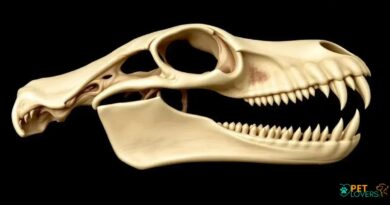What is Key nutrients
What is Key Nutrients?
Key nutrients are essential components that play a vital role in the overall health and well-being of dogs. These nutrients are crucial for various bodily functions, including growth, energy production, and immune system support. Understanding what key nutrients are can help pet owners make informed decisions about their dog’s diet, ensuring they receive the right balance of vitamins, minerals, proteins, fats, and carbohydrates.
Importance of Proteins
Proteins are one of the primary key nutrients for dogs, serving as the building blocks for muscles, tissues, and organs. They are composed of amino acids, some of which are essential and must be obtained through diet. A diet rich in high-quality proteins is vital for maintaining a dog’s energy levels, supporting growth in puppies, and aiding in recovery from illness or injury. Sources of protein include meat, fish, eggs, and certain plant-based options.
The Role of Fats
Fats are another essential nutrient that provides energy and supports various bodily functions in dogs. They are necessary for the absorption of fat-soluble vitamins (A, D, E, and K) and play a crucial role in maintaining healthy skin and a shiny coat. Omega-3 and Omega-6 fatty acids are particularly important for reducing inflammation and promoting heart health. Healthy fat sources include fish oil, flaxseed, and chicken fat.
Carbohydrates: Energy Source
Carbohydrates are often misunderstood but are a key nutrient that provides a quick source of energy for dogs. While dogs are primarily carnivorous, they can digest and utilize carbohydrates effectively. Whole grains, fruits, and vegetables can be excellent sources of carbohydrates, providing not only energy but also fiber, which aids in digestion. It is essential to choose high-quality carbohydrate sources to ensure optimal health.
Vitamins: Essential for Functionality
Vitamins are organic compounds that are crucial for numerous biochemical processes in a dog’s body. Each vitamin has specific roles; for example, Vitamin A supports vision and immune function, while B vitamins are essential for energy metabolism. Vitamin D helps regulate calcium levels, and Vitamin E acts as an antioxidant. A balanced diet should include a variety of fruits and vegetables to ensure that dogs receive all necessary vitamins.
Minerals: Building Blocks of Health
Minerals are inorganic elements that play a critical role in various physiological functions. Key minerals such as calcium and phosphorus are vital for bone health, while potassium and sodium are essential for fluid balance and nerve function. Iron is crucial for oxygen transport in the blood. A well-rounded diet that includes meat, dairy, and leafy greens can help ensure that dogs receive adequate minerals for optimal health.
Water: The Overlooked Nutrient
While often overlooked, water is perhaps the most critical nutrient for dogs. It is essential for maintaining hydration, regulating body temperature, and facilitating digestion and nutrient absorption. Dogs should always have access to fresh, clean water, especially during hot weather or after exercise. Dehydration can lead to serious health issues, making it vital for pet owners to monitor their dog’s water intake.
Balancing Key Nutrients
Balancing key nutrients is essential for a dog’s overall health. Each nutrient plays a unique role, and an imbalance can lead to health problems. For instance, too much protein can strain the kidneys, while insufficient carbohydrates can lead to energy deficits. Pet owners should consult with veterinarians or pet nutritionists to create a balanced diet tailored to their dog’s specific needs, age, and activity level.
Commercial vs. Homemade Diets
When considering key nutrients, pet owners often debate between commercial dog food and homemade diets. Commercial dog foods are formulated to meet the nutritional needs of dogs and often contain a balanced mix of key nutrients. However, homemade diets can be tailored to specific health needs but require careful planning to ensure all key nutrients are included. It’s essential to consult with a veterinarian when transitioning to a homemade diet to avoid nutritional deficiencies.
Conclusion: Understanding Key Nutrients
Understanding what key nutrients are and their importance in a dog’s diet is crucial for pet owners. By ensuring that dogs receive a balanced intake of proteins, fats, carbohydrates, vitamins, and minerals, owners can help their pets lead healthy, active lives. Regular veterinary check-ups and consultations can further assist in maintaining optimal nutrition for dogs.




